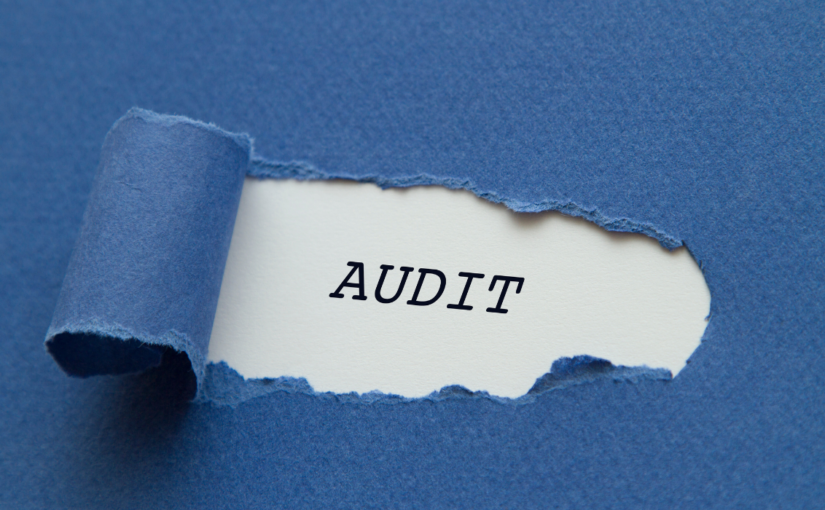back
How to prepare for and manage financial audits in hotel and hospitality property financing
03-2023

Any company that wants to maintain accurate and current financial statements must conduct regular financial audits. Financial audits are crucial in the hotel and hospitality sector because they assist investors and property owners in ensuring that they are handling their money wisely and fulfilling their financial commitments. This blog post will discuss how to manage financial audits in hotel and hospitality property financing as well as how to get ready for them.
What is a Financial Audit?
Let’s define a financial audit first before getting into the specifics of preparing for and managing them in the financing of hotels and other hospitality properties. An independent, unbiased assessment of a company’s financial records and accounting procedures is known as a financial audit. A financial audit’s goal is to reassure interested parties that the financial statements are true and correct, as well as compliant with rules and accounting standards.
How to Get Ready for a Financial Audit
It can take a lot of time and effort to get ready for a financial audit, but it’s necessary to make sure that your hotel or other hospitality property is both legally and financially sound. The following actions can be taken to get ready for a financial audit:
- Gather Financial Records: Gathering all pertinent financial records, such as bank statements, invoices, receipts, and other financial documents, is the first step in getting ready for a financial audit. When the auditor requests them, these documents should be well-organized and kept in a secure location.
- Review Financial Statements: Then, go over your balance sheet, income statement, and cash flow statement in your financial statements. Ensure they are current and accurate. Address any mistakes or inconsistencies before the auditor arrives.
- Check Compliance with Accounting Standards and Regulations: Make sure your financial statements adhere to the rules and standards of accounting. This entails checking all applicable laws that have an impact on your hotel or other hospitality property, as well as your accounting policies and practices.
- Prepare the Necessary Documentation: Create supporting documents, such as invoices, receipts, and contracts, for all financial transactions. Ensure that this documentation is well-organized and simple to find.
- Anticipate Auditor Questions: Prepare detailed responses to any questions the auditor may have by anticipating them. This covers inquiries regarding your financial statements, accounting principles and practices, and supporting records.
Managing a Financial Audit
After you’ve made the necessary preparations, it’s crucial to efficiently manage the auditing process. Here are some pointers for handling a financial audit in the financing of hotels and other hospitality properties:
- Assign an Audit Manager: Give the task of overseeing the audit process to an audit manager. This person must be able to collaborate well with the auditor and possess a thorough understanding of the audit requirements.
- Communicate with the Auditor: Maintain regular contact with the auditor to make sure the audit is going according to plan. This includes giving the auditor any extra information or supporting materials that they request.
- Ensure Employee Collaboration: Make sure that every employee helps the auditor out by providing any information or records that are needed. This includes personnel who may be involved in financial transactions, such as front desk agents, accountants, and other staff members.
- Address Problems Right Away: Address any problems or areas of concern that the auditor points out right away. This includes addressing any non-compliance with accounting standards and laws as well as fixing any errors or discrepancies in financial statements.
- Review Audit Findings: Review the audit results with your audit manager and other pertinent staff members after the audit is finished. This entails locating potential improvement areas and carrying out any necessary corrective measures.
Financial Audit Benefits
For hotels and other hospitality-related properties, financial audits have many advantages. These advantages consist of:
- A Better Financial Management System: Property owners and investors can make more educated financial decisions and manage their finances more successfully by ensuring that their financial statements are accurate and current with the aid of financial audits.
- Adherence to Regulations: Financial audits assist in making sure that accounting standards and rules, such as tax laws and reporting requirements, are being followed. This may assist in avoiding fines, financial penalties, and reputational harm.
- Higher Transparency: Financial audits improve financial reporting’s accountability and transparency, which can help stakeholders like investors and lenders develop trust.
- Identifying Problems: Financial audits can point out areas where internal controls, financial management, and other aspects of the business can be improved. This can assist companies in making the necessary adjustments and enhancing overall performance.
For hotels and other hospitality properties to be in good financial standing and to comply with regulations, financial audits are crucial. Property owners and investors can make sure that their financial statements are accurate, comprehensive, and in compliance with accounting standards and regulations by effectively preparing for and managing financial audits. Financial audits can help with better financial management, rule compliance, increased transparency, and problem identification. Hotel and hospitality properties can position themselves for long-term success by giving financial audits top priority.
F2H Capital Group is a debt advisory firm specializing in negotiating the best terms for your commercial real estate projects. The company offers a range of financial products and services, including fixed loans, bridge loans, and construction loans across all asset types. Please contact us for any of your financing needs.

